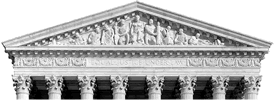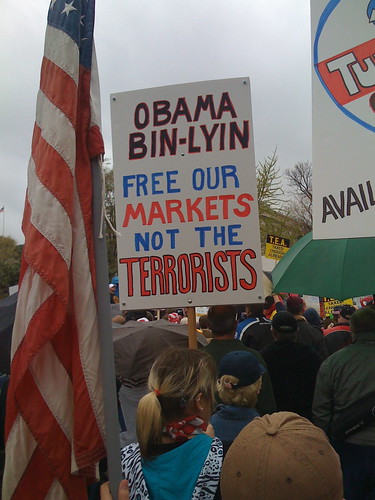Accompanying her husband on a diplomatic visit to Asia, Michelle Obama dropped in on Mumbai University. While Barack Obama was busy lauding the greatness of India’s history, progress and economy, over at Mumbai U Michelle amused kids who otherwise would be rag picking or sleeping in sewers.
The Aftermath of the Kelo Ruling
One year ago, on June 23, 2005, the United States Supreme Court opened the floodgates for the abuse of eminent domain by state and local authorities with its Kelo v. City of New London decision. That decision held that private property could be taken by government agencies and turned over to private developers under the guise of ‘economic development.’
Eminent Hypocrisy
In a June 26 editorial entitled ‘Responsible Use of Eminent Domain,’ the New York Times displays what can only be described as the ultimate in hypocritical chutzpah as it attempts to justify its own nefarious land—grab made under the guise of the principle of eminent domain.
A Supreme Court decision last year on eminent domain caused many people to overreact, most of all Congress. The House of Representatives passed a troubling bill that would severely limit local governments’ ability to clean up blighted areas and promote responsible development. The Senate, which has yet to act, should take a more moderate approach.
Eminent Domain: Being Abused?
Just about everyone knows that under a process called eminent domain, the government can (and does) seize private property for public use – to build a road, a school or a courthouse.
But did you know the government can also seize your land for private use if they can prove that doing it will serve what’s called “the public good”?
Only the Tea Party can save us now
Arriving back at Heathrow late on Sunday night I felt – as you do on returning to Britain these days – as if I were entering a failed state. It’s not just the Third World shabbiness which is so dispiriting. It’s the knowledge that from its surveillance cameras to its tax regime, from its (mostly) EU-inspired regulations to its whole attitude to the role of government, Britain is a country which has forgotten what it means to be free.
Library of Economics and Liberty(Liberty Fund)
The Library of Economics and Liberty is dedicated to advancing the study of economics, markets, and liberty. It offers a unique combination of resources for students, teachers, researchers, and aficionados of economic thought.
The website is provided by Liberty Fund, Inc., a private, educational foundation established to encourage the study of the ideal of a society of free and responsible individuals. The Foundation develops, supervises, and finances its own educational activities, with the goal of fostering discussion and thought on enduring topics pertaining to the creation and maintenance of such a society.
The Fed Printing More Money Will Make Things Worse
Today, Chairman Ben Bernanke gave a big speech on the Federal Reserve’s next move in Boston. During his speech, Bernanke announced yet another round of “quantitative easing”. In plain English, this means that the Fed will fire up their printing presses to create more money. This likely won’t end well.
Federal Reserve System
Several monetary institutions appeared in the United States prior to the formation of the Federal Reserve System, or Fed. These were, in order: the constitutional gold (and bimetallic) standard, the First and Second Banks of the United States, the Independent Treasury, the National Banking System, clearinghouse associations, and the National Reserve Association. The Fed was the last such institution founded. Although it has endured, the present-day Fed would be unrecognizable to its founders.
The Winner: Rush Limbaugh
“I hope he fails.” With those famous four words, uttered January 16, 2009 — only days before Barack Obama was to be inaugurated — Rush Limbaugh drew a line in the sand.
And as a result, this morning it is Rush Limbaugh who is the undisputed winner of the 2010 election. The White House is repudiated. The Pelosi-run House of Representatives, supported by the Democrats’ Congressional Campaign Committee, also deliberately targeted Limbaugh. Speaker Pelosi is, abruptly, now history. The Senate is richer by a still-undetermined number of conservatives as this goes to Internet press.






